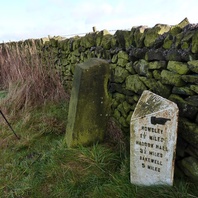
Viking Names
Great Rowsley
Great Rowsley, in the High Peak Hundred of Derbyshire, comes from either the Old Norse male personal name Hrólfr or the Old English male personal name Hroðwulf. The second element is Old English leah ‘A forest, wood, glade, clearing; (later) a pasture, meadow’, so if the first element is the Old Norse personal name then it is a hybrid place-name. The affix ‘great’ was a later addition to distinguish this Rowsley from Little Rowsley in the Darley Parish of the High Peak Hundred.
Read More
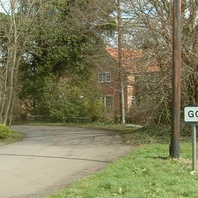
Viking Names
Gonalston
Gonalston, in the Thurgarton Wapentake of Nottinghamshire, comes from the Old Norse male personal name Gunnolfr and the Old English tun ‘farm, settlement’. It is thus a hybrid name, like Toton.
Read More

Viking Names
Maplebeck
Maplebeck, in the Thurgarton Wapentake of Nottinghamshire, is an Anglo-Scandinavian compound formed from Old English mapel ‘a maple tree’ and Old Norse bekkr ‘a stream, a beck’
Read More
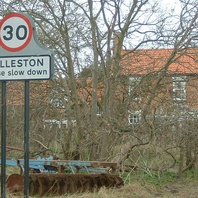
Viking Names
Rolleston
Rolleston, in the Thurgarton Wapentake of Nottinghamshire, comes from the Old Norse male personal name Hróaldr and the Old English element tun ‘farm, settlement’. It is thus a hybrid name like others nearby, such as Gonalston.
Read More

Viking Names
Snarford
Snarford, in the Lawress Wapentake of Lincolnshire, is an Anglo-Scandinavian hybrid from the genitive singular form of the Old Norse male personal name Snǫrtr, i.e. Snartar, and Old English ford ‘a ford’. The ford crossed Barlings Eau and Snarford may have been situated on an ancient line of communication between Lincoln and the Wolds.
Read More
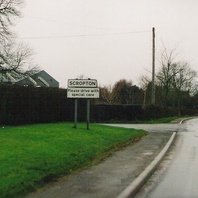
Viking Names
Scropton
Scropton, in the Appletree Hundred of Derbyshire, comes from the Old Norse male personal name Skropi and the Old English tun ‘farm, settlement’. It is thus a hybrid name. It is a joint parish with Foston.
Read More
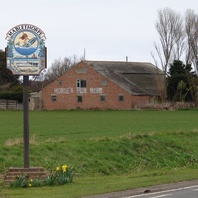
Viking Names
Mablethorpe
Marblethorpe, in the Calceworth Wapentake of Lincolnshire, comes from a likely Continental Germanic male personal name Malbert and Old Norse þorp ‘a secondary settlement, a dependent outlying farmstead or hamlet’.
Read More

Viking Names
Gunngifu
Gunngifu is a postulated Anglo-Scandinavian hybrid female personal name formed from the very common Old Norse element Gunn- from gunnr, guðr ‘battle’ combined with the Old English element gifu ‘gift’. There is a possible attestation of the name in a medieval document from Lincolnshire.
Read More

Viking Names
Willoughby Waterleys
Willoughby Waterleys, in the Guthlaxton Hundred of Leicestershire, is an Anglo-Scandinavian compound from Anglian wilig ‘a willow-tree’ and Old Norse by ‘a farmstead, a village’. This is a common hybrid place-name and in most cases of usage it is a Scandinavianized form of Old English wiligtun ‘farmsted or village where the willows grow’. Some names of this type may conceal the Old English wiliga-beag ‘a circle of willow-trees’. Willoughby is a well-watered parish and lies on gravel and clay between two arms of the Whetstone Brook and has many large pools in its vicinity. Therefore its affix Waterleys from Old English leah ‘a forest, wood, glade, clearing; (later) a pasture, meadow’ and Old English wæter (Old English) ‘water, a river, a lake’ is appropriate. The affix was likely added at a later date to distinguish this Willoughby from Willoughby on the Wolds just beyond the Nottinghamshire boundary to the north.
Read More
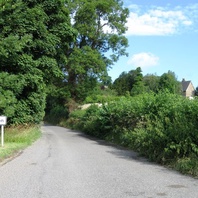
Viking Names
Kirk Ireton
The first element of Kirk Ireton, in the Wirksworth Hundred of Derbyshire, is the genitive singular or plural of the Old Norse ethnonym Íri, ‘an Irishman; probably also a Norseman who had lived in Ireland’ combined with the Old English element tun ‘an enclosure; a farmstead; a village; an estate’. Old Norse kirkja ‘a church’ was affixed at a later date. Traditionally, the place-name has been interpreted as referring to a settlement of Irishmen; probably Norsemen who lived in Ireland. However, the exact implications of such a name are not yet fully understood and are the subject of ongoing work by Dr Jayne Carroll of the Institute for Name-Studies, University of Nottingham.
Read More
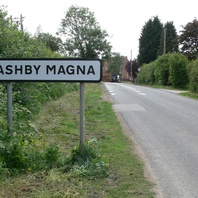
Viking Names
Ashby Magna
Ashby Magna, in the Guthlaxton Hundred of Leicestershire, is likely an Anglo-Scandinavian name coming from Old English æsc ‘ash-tree’ and Old Norse by ‘a farmstead, a village’. Some spellings may show influence of Old Norse eski ‘a place growing with ash-trees’ or even Old English esce ‘a stand of ash-trees’ on the first element. Ashby is a common place-name, but is is uncertain whether this name is an Old English creation Scandinavianized (i.e replacing Old English tun ‘an enclosure; a farmstead; a village; an estate’ with Old Norse by) or whether the name is fully Scandinavian in origin, with Old English æsc (Middle English ash) replacing Old Norse askr ‘ash-tree’. The affix Medieval Latin magna ‘great’ differentiates the township from Ashby Parva, which lies approximately three miles to the south-west.
